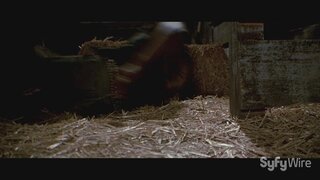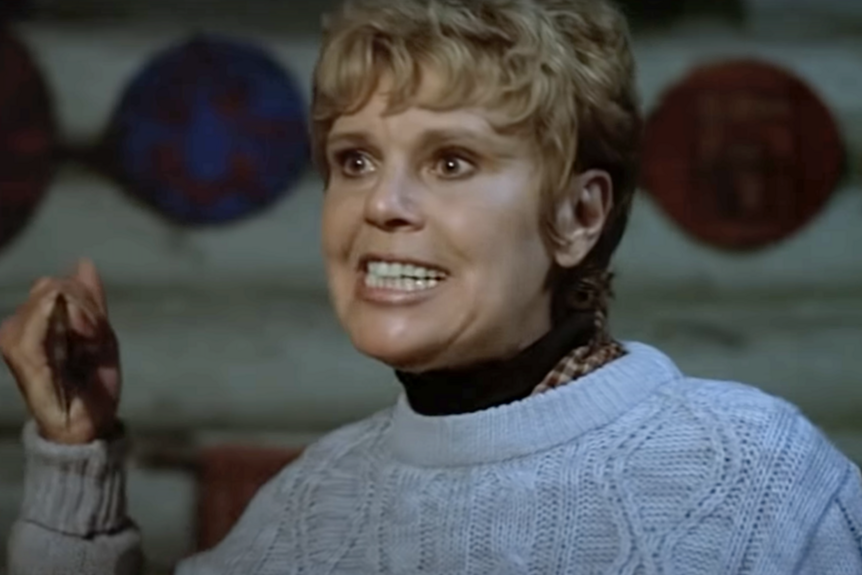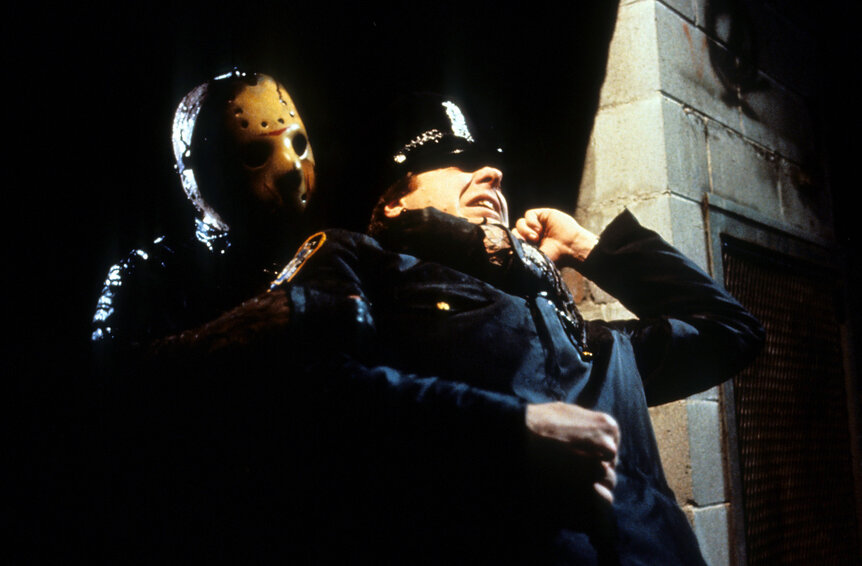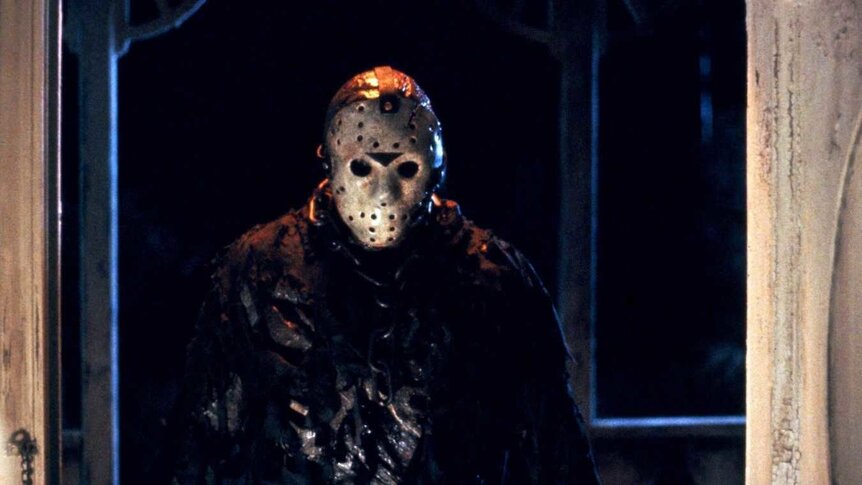Create a free profile to get unlimited access to exclusive videos, sweepstakes, and more!
The Unlucky Truth About Friday the 13th (and Other Superstitions)
Luck hits everyone (and every day) in equal measure.
Mixing together an accidental drowning, a vengeful mother, and a malicious supernatural power, the 1980 slasher film Friday the 13th crafted one of the most enduring horror franchises in history. Now, Peacock is tackling the origin of Jason Voorhees in Crystal Lake, coming soon to Peacock!
The movie’s title also leans on a nearly universally understood superstition to anchor its horror. Everyone knows that Friday the 13th is spooky (when it happens in October it’s even spookier!), but you may not know why. Here’s everything you need to know about the spookiest day of the year.
The Origin of Friday the 13th
The precise origin of fear surrounding Friday the 13th isn’t wholly clear. Probably, the superstition stems from a mashup of several different historical superstitions blending together over time. Looking back through our history, we find that different cultures held superstitious beliefs about both the number 13 and Fridays.
RELATED: All the ‘Friday the 13th’ Movies, Ranked
Fear or discomfort around the number 13 is ancient and that fear may relate to its proximity with the number 12. Many cultures considered 12 to be a “perfect” number. It’s easy to work with (divisible by 2, 3, 4, and 6) which might be why it has made its way into so many parts of our lives. Our calendars have 12 months, the clock is broken into 12-hour segments, there are 12 inches in a foot, and 12 grades in grade school. Standing next to 12, it was maybe inevitable that 13 would get a bad rap by comparison.
Thirteen also shows up in religious mythology across various cultures, sometimes in surprisingly similar ways. In Norse lore, for instance, a dinner party in Valhalla gets crashed by Loki, the 13th dinner guest, allowing him to unleash evil onto the world. That story mirrors a more recent religious event in the Last Supper. There were 13 dinner guests as well, and Judas, the last to arrive, caused the crucifixion of Christ the following day: a Friday.
In fact, unlucky Fridays are a long-standing tradition in Christianity. Some interpretations of scripture indicate that Adam and Eve at the Tree of Knowledge, Cain killing Abel, and the great flood all happened on Fridays.
Is Friday the 13th Actually Unlucky?
There’s little reason to believe that any particular number or any particular date would be unlucky, but that hasn’t stopped scientists from double checking. In 2015, researchers published a study looking at socioeconomic outcomes of people born on different dates, with a special focus on the 13th of any month and Friday the 13th.
Researchers took data from a U.K. Labor Force survey and looked at things like employment and income. The idea being that if Friday the 13th was actually unlucky, we should see that play out in the lives of people unfortunate enough to be born on the unluckiest day.
RELATED: 'Friday the 13th' star Adrienne King kicks off work on Peacock's 'Crystal Lake'
Researchers found nothing. There was no statistically significant difference in employment, income, or marital status among people born on the 13th (Friday or otherwise) and people born any other day. Over the years, a number of studies have been conducted, looking at similar questions through various demographics and data sets, with a wide range of findings. Which is more or less what you would expect when studying statistically random events.
While some studies may have found a correlation (importantly, others did not) between certain groups or certain activities and bad luck on the 13th, there has never been a causal relationship established. There’s just no reason to believe that any number or day would be unlucky. Unless…
The Real Power of Superstition
Superstitious beliefs like fear of Friday the 13th have only the power we give them, but that’s not nothing. A study published in the journal Psychological Science asked participants to perform a number of tasks including games and puzzles, with or without the benefit of a “lucky charm.”
In one experiment, participants were asked to golf using a “regular” ball or a “lucky” ball and their performance was measured. Those players who hit the lucky ball did considerably better than those who used a regular ball, even though the balls were exactly the same. In other experiments, participants were asked to solve puzzles with or without a lucky charm they brought from home.
RELATED: Bryan Fuller says ‘Crystal Lake’ series can use ‘everything’ from 'Friday the 13th' franchise
Researchers found that participants who had their lucky charm were more likely to solve puzzles, in part because they were more persistent and determined. Rather than there being any actual impact of luck, researchers suggested that people with lucky charms or some other superstition in their corner have a higher level of confidence and increased willingness to see a task through.
Importantly, the study appears to suggest the opposite is also true. Those who believed they were at a disadvantage because of a lack of luck performed more poorly. All of which is to say, Friday the 13th might actually be unlucky, but only if you believe it is.
Crystal Lake, the Friday the 13th prequel series from Bryan Fuller, is coming soon. In the meantime, catch all of your horror favorites streaming now on Peacock!

































